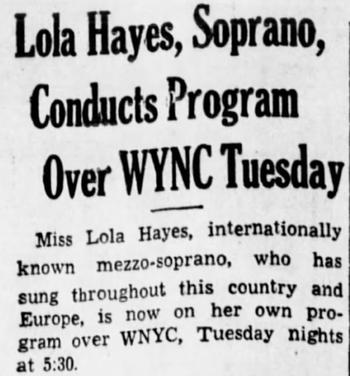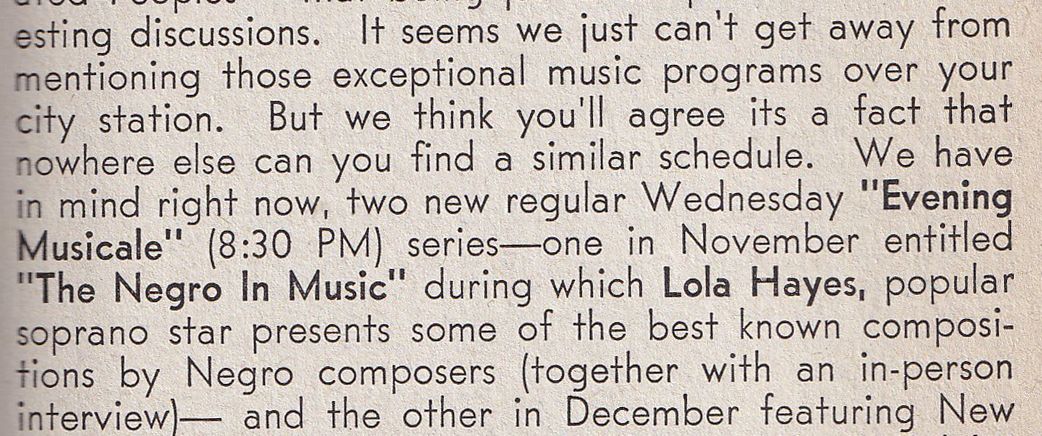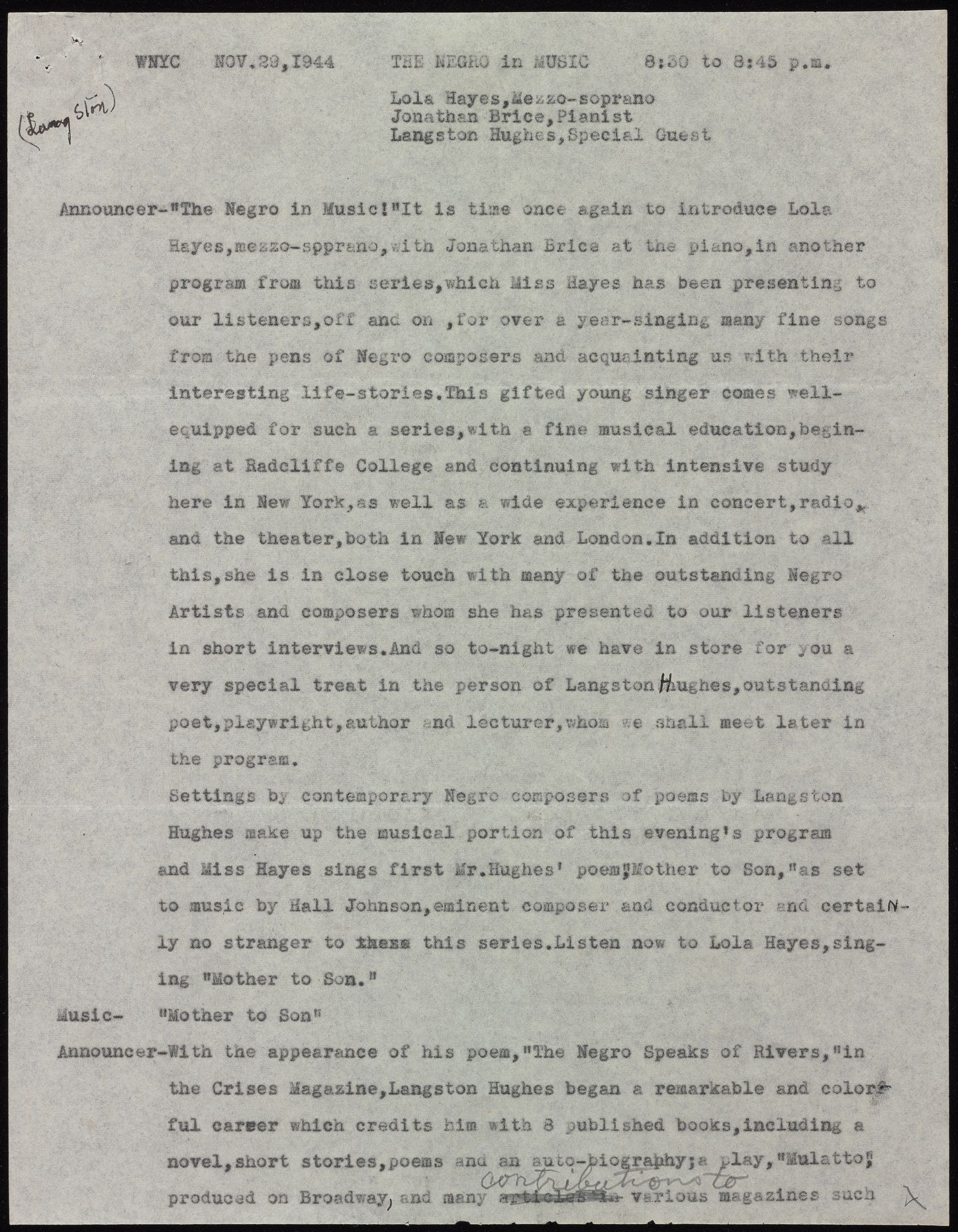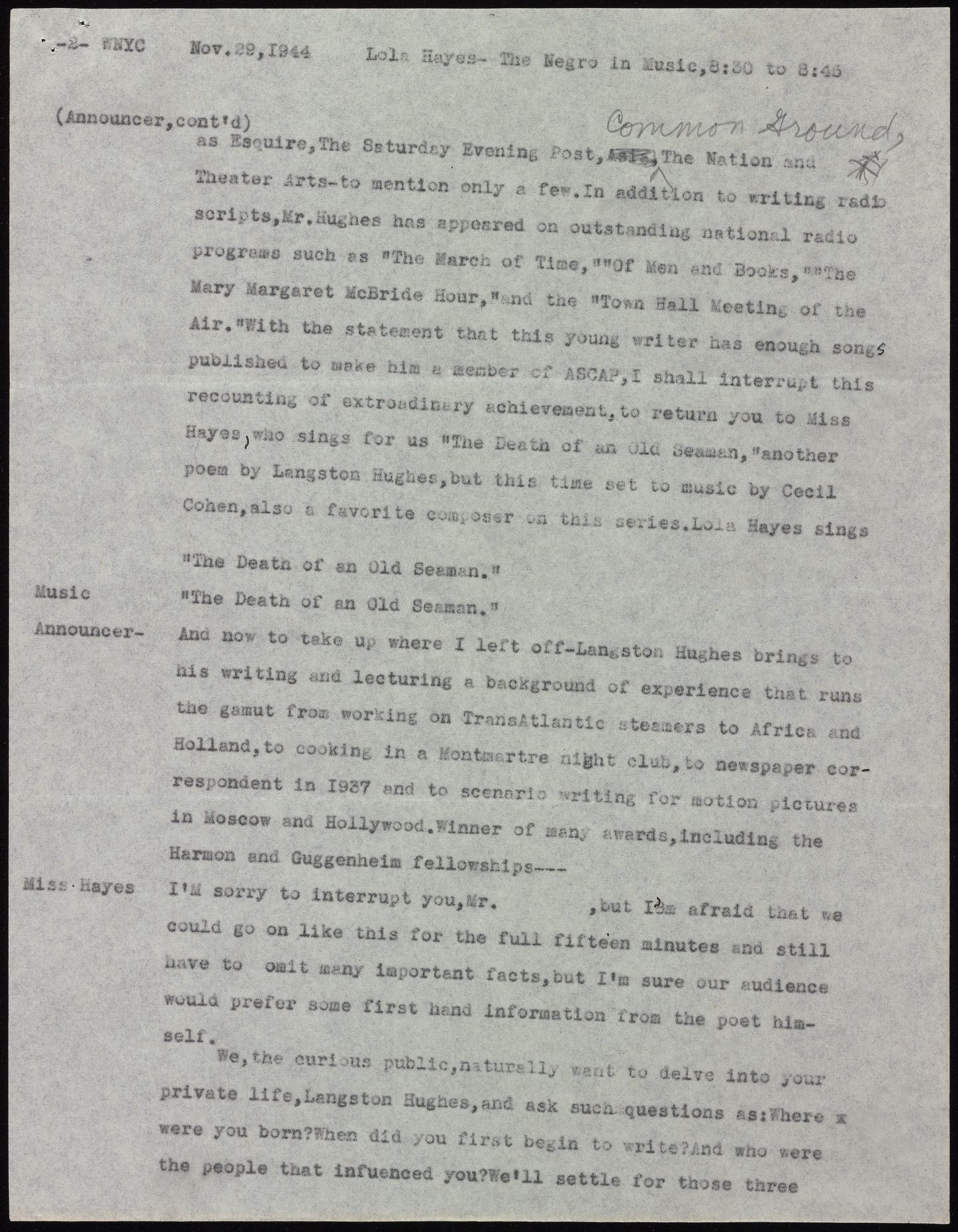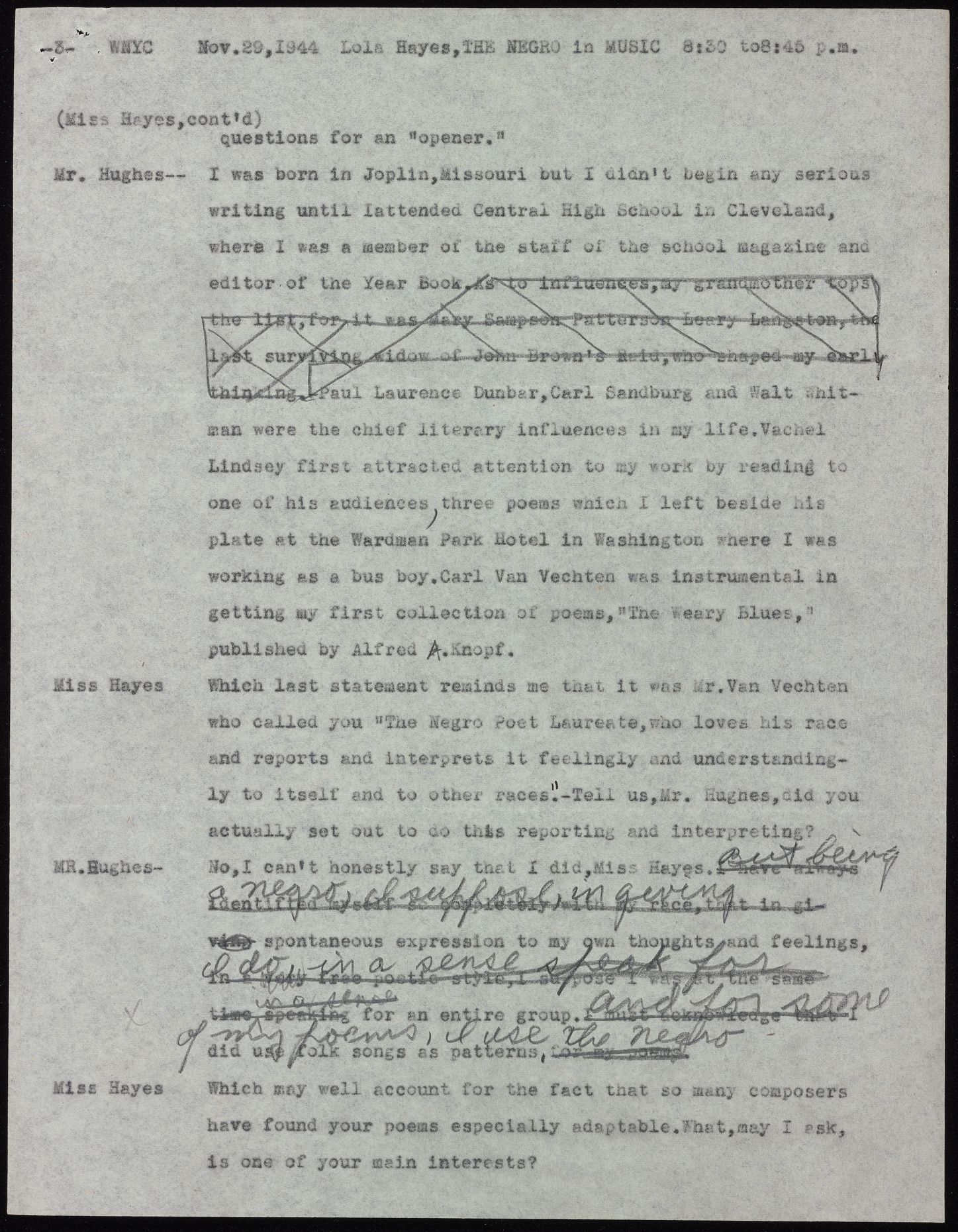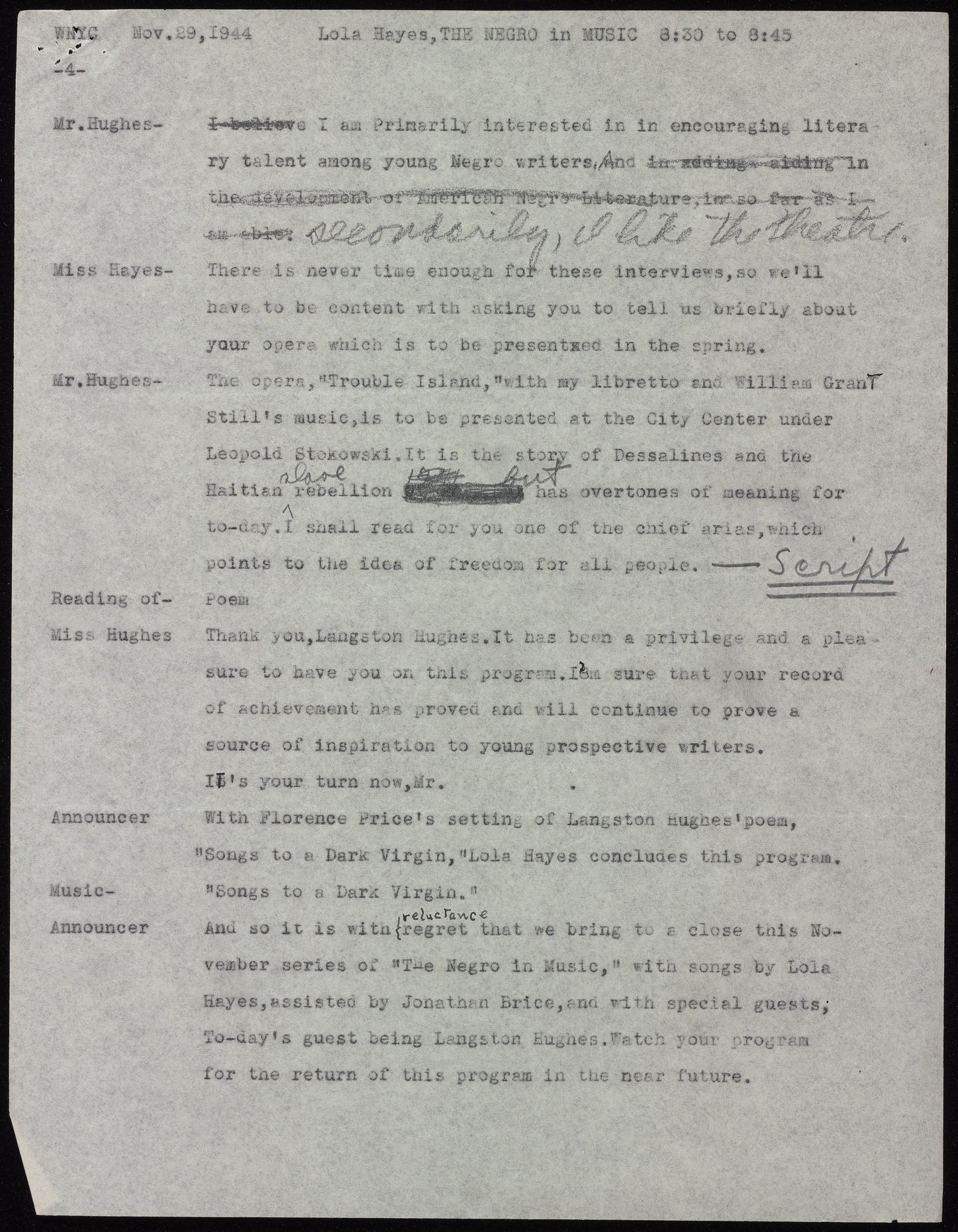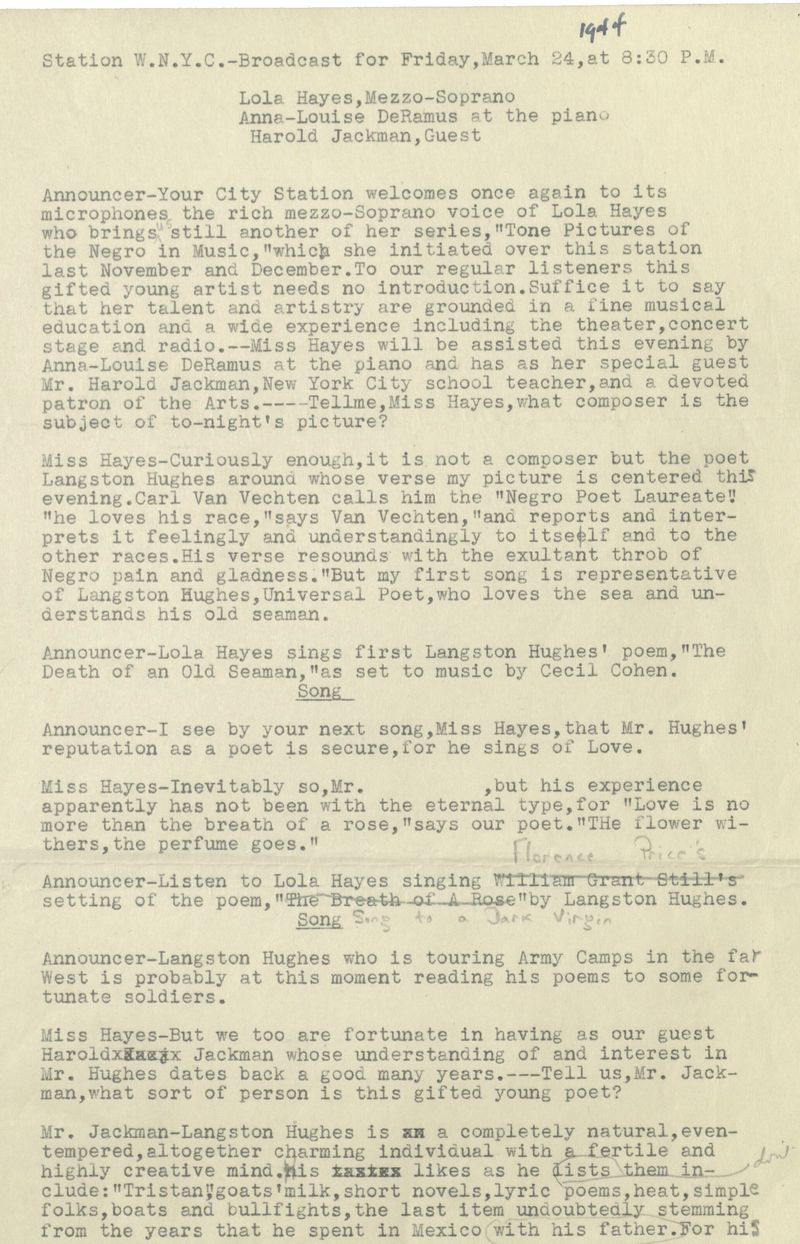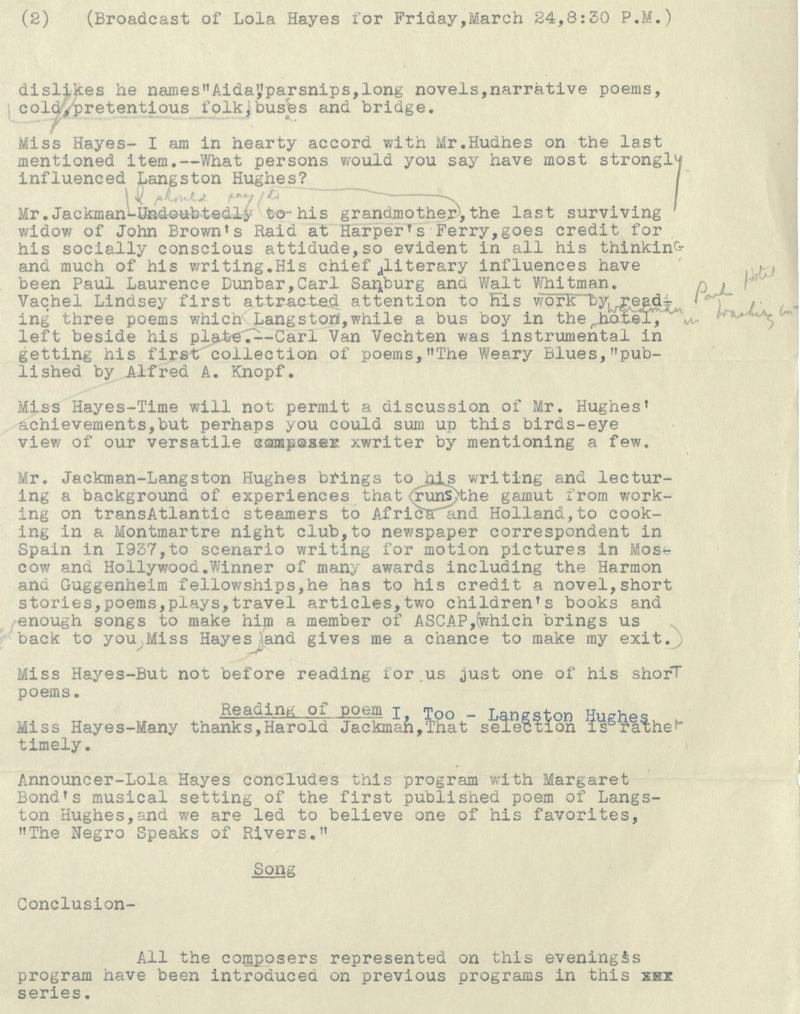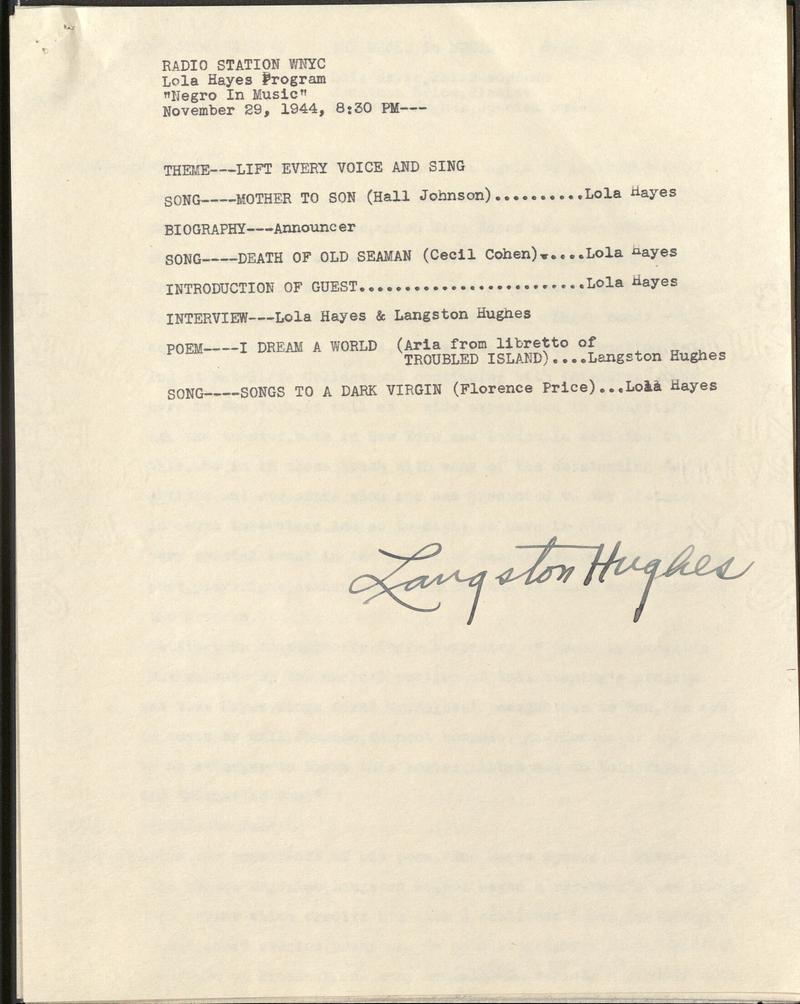 NYPR Archives & Preservation
NYPR Archives & Preservation
Lola Hayes and "Tone Pictures of the Negro in Music"

Lola Wilson Hayes (1906-2001) was a highly-regarded African-American mezzo-soprano, WNYC producer, and later, much sought after vocal teacher and coach. A Boston native, Hayes was a music graduate of Radcliffe College and studied voice with Frank Bibb at Baltimore's Peabody Conservatory. She taught briefly at a Black vocational boarding school in New Jersey known as the 'Tuskeegee of the north'[1] before embarking on a recital and show career which took her to Europe and around the United States. During World War II, she also made frequent appearances at the American Theatre Wing of the Stage Door Canteen of New York and entertained troops at USO clubs and hospitals.
Hayes also made time to produce a short but notable run of WNYC programs, which she hosted and performed on the home front. Her November and December 1943 broadcasts were part of a rotating half-hour time slot designated for known recitalists. She shared the late weekday afternoon slot with sopranos Marjorie Hamill, Pina La Corte, Jean Carlton, Elaine Malbin, and the Hungarian pianist Arpád Sándor. Hayes' series, Tone Pictures of the Negro in Music, sought to highlight African-American composers and was frequently referred to as The Negro in Music.
The outline of 1943 and 1944 broadcasts was pieced together from the WNYC Masterwork Bulletin program guide and period newspaper radio listings. Details on the 1943 programs are sparse. We know that Hayes' last broadcast in 1943 featured the pianist William Duncan Allen (1906-1999) performing They Led My Lord Away by Roland Hayes and Good Lord Done Been Here by Hall Johnson, and a Porgy and Bess medley by George Gershwin.
The show was scheduled again in August 1944 as a 15-minute late Tuesday afternoon program and in November that year as a half-hour Wednesday evening broadcast. The August programs began with an interview of soprano Abbie Mitchell (1884-1960), the widow of composer and choral director Will Marion Cook (1869-1944). The composer and arranger Hall Johnson (1888-1970) was her studio guest the following week. The third Tuesday of the month featured pianist Jonathan Brice performing "songs of young contemporary Negro composers," and the August shows concluded with selections from Porgy and Bess and Cameron Jones. The November broadcasts focused on the work of William Grant Still, "the art songs, spirituals and street cries" of William Lawrence, as well as the songs and spirituals of William Rhodes, lyric soprano Lillian Evanti, and baritone Harry T. Burleigh. Hayes also spent airtime on the work of neo-romantic composer and violinist Clarence Cameron White. The November 29th program considered "the musical setting of poems by Langston Hughes and included the bard himself. "Langston Hughes was guest of honor and punctuated his interview with a reading from his opera Troubled Island."[2] The original Hughes-annotated WNYC script is below.
This was not the first time the poet's work was the subject of Hayes broadcast. Below is a copy of her script from a program airing eight months earlier when she sat in for the regularly scheduled host, soprano Marjorie Hamill.
It is unfortunate, but it appears there are no recordings of Lola Hayes' WNYC program. We can't say if that's because they weren't recorded or, if they were, the lacquer discs have not survived. We do know that World War II-era transcription discs, in general, are less likely to have survived since most of them were cut on coated glass, rather than aluminum, to save vital metals for the war effort.
After the war, Hayes focused on voice teaching and coaching. Her students included well-known performers like Dorothy Rudd Moore, Hilda Harris, Raoul Abdul-Rahim, Carol Brice, Nadine Brewer, Elinor Harper, Lucia Hawkins, and Margaret Tynes. She was the first African-American president of the New York Singing Teachers Association (NYSTA), serving in that post from 1970-1972. In her later years, she devoted much of her time to the Lola Wilson Hayes Vocal Artists Award, which gave substantial financial aid to young professional singers worldwide.[4]
___________________________________________________________
[1] The Manual Training and Industrial School for Colored Youth in Bordentown, New Jersey
[2] "The Listening Room," The People's Voice, December 2, 1944, pg. 29. The newspaper noted that the broadcast included Hall Johnson's Mother to Son, Cecil Cohen's Death of an Old Seaman and Florence Price's Song to a Dark Virgin, all presumably sung by host, Lola Hayes.
Troubled Island is an opera set in Haiti in 1791. It was composed by William Grant Still with a libretto by Langston Hughes and Verna Arvey.
[3] Page two of the script notes Langston Hughes' grandmother was married to a veteran of the 1859 Harper's Ferry raid led by abolitionist John Brown. Indeed, Hughes' grandmother's first husband was Lewis Sheridan Leary, who was one of Brown’s raiders at Harper's Ferry. For more on the story please see: A Shawl From Harper's Ferry.
[4] Abdul, Raoul, "Winners of the Lola Hayes Vocal Scholarship and Awards," The New York Amsterdam News, February 8, 1992, pg. 25.
Special thanks to Valeria Martinez for research assistance.
